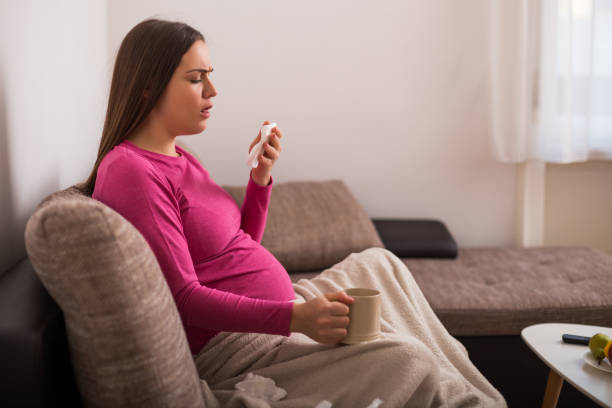Pregnancy allergies are a common concern for many expectant mothers. Allergies during pregnancy can cause discomfort and distress for both the mother and the baby. In this article, we will discuss the causes, symptoms, and treatments for pregnancy allergies.
Causes of Pregnancy Allergies
Allergies during pregnancy are caused by a variety of factors. The most common allergens include pollen, dust mites, pet dander, and mold spores. In addition, certain foods, such as peanuts and shellfish, can also trigger allergies in some pregnant women.
During pregnancy, hormonal changes can also contribute to allergies. The immune system is suppressed during pregnancy to prevent the body from rejecting the developing fetus. This can cause the body to become more sensitive to allergens.
Symptoms of Pregnancy Allergies
The symptoms of pregnancy allergies can vary depending on the type of allergy. Common symptoms include:
- Sneezing
- Runny or stuffy nose
- Itchy or watery eyes
- Hives or rash
- Swelling of the face, lips, or tongue
- Difficulty breathing
If you experience any of these symptoms, it is important to consult with your healthcare provider.
Treatment for Pregnancy Allergies
The treatment for pregnancy allergies depends on the severity of the symptoms. Mild allergies can be treated with over-the-counter antihistamines or nasal sprays. However, it is important to consult with your healthcare provider before taking any medication during pregnancy.
In severe cases, allergy shots may be recommended. These shots contain small amounts of the allergen and can help the body build up a tolerance to the allergen over time.
Prevention of Pregnancy Allergies
Prevention is key when it comes to pregnancy allergies. Here are some tips to help prevent allergies during pregnancy:
- Avoid exposure to known allergens, such as pollen, dust mites, and pet dander.
- Keep your home clean and free of dust and mold.
- Use an air purifier to help reduce allergens in the air.
- Avoid eating foods that trigger allergies.
- Consult with your healthcare provider before taking any medication during pregnancy.
Conclusion
In conclusion, pregnancy allergies can be a challenging issue for expectant mothers. However, with the right treatment and prevention methods, allergies during pregnancy can be managed effectively. If you experience any symptoms of pregnancy allergies, it is important to consult with your healthcare provider to ensure the safety of both you and your baby.

